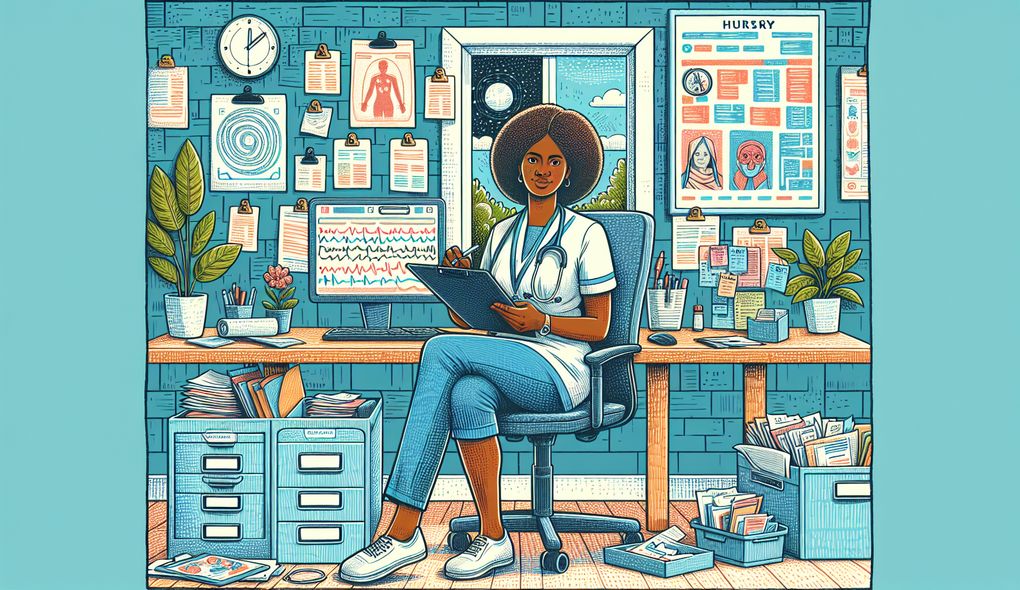How do you educate patients and their families on their conditions and care requirements?
INTERMEDIATE LEVEL

Sample answer to the question:
When educating patients and their families, I use clear and simple language to explain their conditions and care requirements. I provide them with written materials and resources to reinforce their understanding. I also take the time to answer any questions they may have and address any concerns. In addition, I involve them in the decision-making process by discussing their treatment options and involving them in the development of their care plans.
Here is a more solid answer:
When educating patients and their families, I draw upon my strong clinical skills and understanding of patient care to provide comprehensive and accurate information. I communicate in a clear and empathetic manner, using layman's terms to ensure understanding. I utilize visual aids, such as diagrams and models, to enhance their learning experience. I also actively listen to their concerns and address them with compassion and reassurance. In a fast-paced and potentially stressful environment, I remain calm and composed, prioritizing their needs and adapting my approach based on their individual learning styles.
Why is this a more solid answer?
The solid answer expands on the basic answer by providing specific examples of how the candidate utilizes their skills in clinical care, communication, and handling stress. They mention using visual aids, actively listening, and adapting their approach. However, the answer could still benefit from more details and examples to further demonstrate their expertise and effectiveness.
An example of a exceptional answer:
Educating patients and their families on their conditions and care requirements is a crucial aspect of my role as a Nurse Case Manager. I begin by assessing their knowledge level and tailoring my approach accordingly. Using my strong clinical skills and understanding of patient care, I provide them with comprehensive and accurate information, ensuring they have a solid foundation to make informed decisions. I go beyond verbal instructions by creating personalized educational materials, including written instructions, videos, and interactive online resources, that cater to their individual learning styles. I also collaborate with interdisciplinary teams to ensure consistency in education and address any complex medical concepts. Additionally, I encourage active participation by involving patients and their families in shared decision-making, allowing them to have a sense of control and autonomy in their care. In this fast-paced and potentially stressful environment, I remain calm and composed, managing my time effectively and prioritizing their education alongside other responsibilities. I maintain a compassionate and empathetic approach, always mindful of their emotional well-being and promoting open communication. By consistently evaluating the effectiveness of my educational strategies and seeking feedback from patients and families, I strive for continuous improvement in the way I educate and support them.
Why is this an exceptional answer?
The exceptional answer provides a comprehensive and detailed explanation of the candidate's approach to educating patients and their families. They demonstrate their expertise in clinical care and patient education by tailoring their approach, creating personalized educational materials, and involving interdisciplinary teams. They also show their ability to handle the challenges of a fast-paced and potentially stressful environment while maintaining a compassionate and empathetic approach. The answer is well-rounded and provides a thorough understanding of the candidate's skills and capabilities in relation to the job requirements.
How to prepare for this question:
- Familiarize yourself with common medical conditions and treatment options to effectively educate patients and their families.
- Practice explaining complex medical concepts in simple and relatable terms.
- Develop your active listening skills to better understand patients' concerns and address them effectively.
- Explore different educational resources and tools, such as videos and interactive online materials, to enhance patient education.
- Reflect on past experiences where you successfully educated patients and their families and think about what strategies worked well.
- Stay updated with current healthcare regulations and guidelines to ensure compliance in patient education.
What are interviewers evaluating with this question?
- Strong clinical skills and understanding of patient care
- Good communication and interpersonal skills
- Ability to function well in a fast-paced and potentially stressful environment

